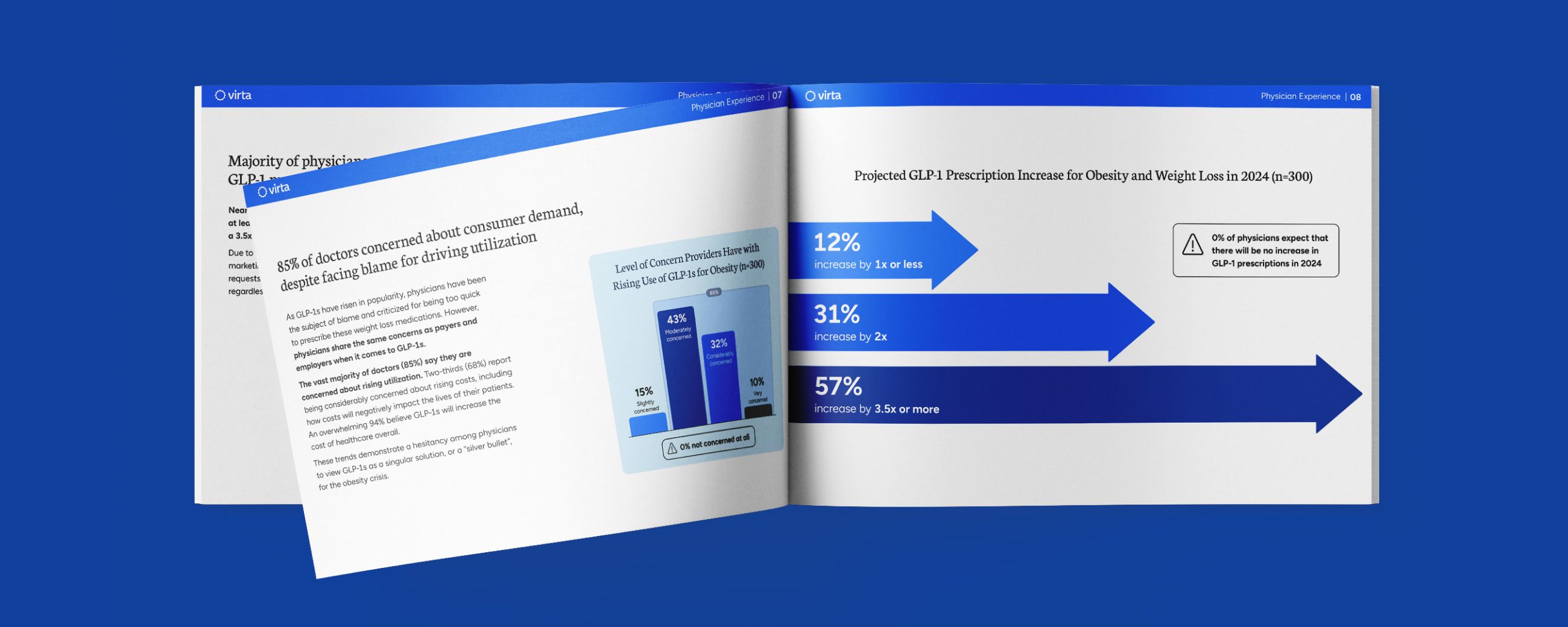
Increased Longevity —A Credible Benefit of Nutritional Ketosis?

The topic of diet and lifestyle interventions to promote longevity—some intellectually laudable and some frankly preposterous—has long been a graveyard for dreams of a fountain of youth. The tricky thing about doing credible research on this topic is that a rigorous human study would take over 100 years, and animal research is notoriously inaccurate for predicting human outcomes. Therefore, we should look at these animal longevity studies with a critical eye. The next new thing seeking our attention on this topic should have a high bar to surpass to gain any credibility.
That said, there has been a consistent line of research over the last few decades linking long-term energy-restricted (i.e., calorie-restricted) diets to increased longevity in animal models like fruit flies,¹ worms,² and mice;³ but longer term studies in monkeys have yielded mixed results.⁴,⁵ Some groups advocate that we eat either a consistent energy-restricted diet (i.e., 60-70% of "normal intake") or to practice intermittent fasting (i.e., a partial day or even multiple days with no food intake) to live longer. The problem is that many people find that these practices leave them constantly hungry, making long-term adherence difficult. Furthermore, intermittent fasting is a dangerous roller-coaster for anyone taking medication to manage diabetes.
An important supporting step in understanding how energy restriction works has been the observation that this process alters an important regulatory enzyme called mTORc1.⁶ Along with a few other biochemical pathways, "mTOR" is now understood to have potent effects on both aging and cancer, and thus it has become a hot topic in pharmaceutical research. Clearly a drug that is safe to take long term and extends both length and quality of life would be a blockbuster.
It is already well known that inflammation and oxidative stress cause accelerated aging and increase cancer risk, but until about a decade ago, we did not know how a ketogenic diet affected these factors. In 2008, we published a study of people with prediabetes who were assigned to follow either a low-fat, calorie-restricted diet or an unrestricted, well-formulated ketogenic diet for 3 months.⁷ Both groups lost weight—albeit significantly more in the ketogenic diet group—but what was striking were markedly greater reductions in biomarkers of inflammation in the ketogenic group. In addition, striking changes in certain polyunsaturated fats typically found in cell membranes indicated a major reduction in oxidative stress (i.e., damage caused by free radicals).
What can the mouse studies tell us?
The Aha! moment came in 2013 with the publication of a study from the University of California, San Francisco.⁸ It had been known for quite some time that short-chain fatty acids like butyrate can influence the mTOR pathway as well as a group of HDAC enzymes that regulate defenses against oxidative stress. Since butyrate and beta-hydroxybutyrate (βOHB, the primary ketone produced by the body) only differ by one oxygen molecule, perhaps βOHB might also reduce oxidative stress. So they asked the question, what if we either put mice on a fast (to cause temporary ketosis) or infuse beta-hydroxybutyrate into mice?
The answer was profound. Just 1 millimolar βOHB, whether made internally or infused into the animals, induced potent antioxidant effects by altering HDAC enzyme activity. This raised a new question: were the effects of energy restriction on improving longevity not from the calorie restriction itself, but rather from the resulting increased production of βOHB, the primary ketone produced by the body?
This new perspective convinced two research groups—the one at UC San Francisco that published this provocative finding and the other at UC Davis—to undertake mouse longevity studies, which typically last over 1,000 days. Fast-forward to the present. This month (September 2017), both studies were published in the same issue of the journal Cell Metabolism.⁹,¹⁰ Both reported improved physical and mental preservation with aging, but only one of the two demonstrated increased lifespan with the ketogenic diet. Why the differential effects on longevity?
So here is where the story gets even more complex. Part of the reason for these different results is that the UC Davis group, which showed a 13% longevity advantage for the ketogenic diet, fed all of their animals a set amount of energy each day calculated to maintain their adult body weight. The other group only fed the ketogenic diet every other week, alternating with a week on standard mouse chow—in other words, a mouse version of intermittent “carbohydrate fasting” where the mice could eat as much as they wanted. The reason they decided to try these varying strategies is that mice fed a diet that is roughly 10% of energy as protein and 90% as fat tend to overeat and become obese.
What do these mouse studies mean for humans?
And so here we have to point out the obvious — that mice aren’t humans. To get mice to make reasonable levels of βOHB, we need to restrict their protein and pretty much eliminate all dietary carbohydrates. But when their protein is this restricted, mice will spontaneously eat more, leading to significant weight gain. Humans are different. In human study after human study, normal-weight patients fed a well-formulated ketogenic diet reduce their body fat content even if they don’t lose much weight; whereas most heavy patients encouraged to eat this diet to satiety (i.e., until they are satisfied) lose a lot of their excess body fat.⁷,¹¹,¹² Unlike mice, there are no published human studies in which a well-formulated ketogenic diet caused significant weight gain! So this is one more example where research demonstrates differences between mice and men.
Which brings us back to our initial question: is increased longevity a credible benefit of nutritional ketosis? As an analogy, let’s imagine that you are tracking a mysterious and exotic animal. Each day when you set out to find it, a new set of tracks leads you to the mouth of the same cave. Eventually you become convinced that said cave houses your animal.
We have lots of signs leading us to the conclusion that nutritional ketosis is beneficial for humans. Reduced oxidative stress, reduced inflammation, direct effects on pathways linked to cancer and aging, and now one carefully performed animal study that increased longevity by 13%. We also have the caution that an intermittent ketogenic diet strategy (essentially intermittent “carbohydrate fasting”) might yield some, but not all, of the same benefits.
Our conclusion is that we are on the cusp of a scientific and dietary revolution. But we are not quite there yet in nailing down the last longevity detail. In the meantime, however, ketogenic diets have proven health benefits unrelated to longevity. Thousands of people have used a ketogenic diet to stop seizures without drugs, to reverse their type 2 diabetes on a lot less drugs, to make their blood pressure and blood lipids look a lot less threatening, to shed a considerable amount of excess weight, and to feel and function better, all without significant side effects. So perhaps we don’t need to wait 100 years for a human longevity study to appreciate the benefits of nutritional ketosis.
Have more questions about nutritional ketosis? Check out our research on type 2 diabetes reversal, or our FAQ by Dr. Steve Phinney and the Virta team.
The information we provide at virtahealth.com and blog.virtahealth.com is not medical advice, nor is it intended to replace a consultation with a medical professional. Please inform your physician of any changes you make to your diet or lifestyle and discuss these changes with them. If you have questions or concerns about any medical conditions you may have, please contact your physician.
This blog is intended for informational purposes only and is not meant to be a substitute for professional medical advice, diagnosis, or treatment. Always seek the advice of your physician or other qualified health provider with any questions you may have regarding a medical condition or any advice relating to your health. View full disclaimer
Are you living with type 2 diabetes, prediabetes, or unwanted weight?

- Min KJ, Yamamoto R, Buch S, Pankratz M, Tatar M. Drosophila lifespan control by dietary restriction independent of insulin‐like signaling. Aging cell, 2008
- Greer EL, Dowlatshahi D, Banko MR, Villen J, Hoang K, Blanchard D, Gygi SP, Brunet A. An AMPK-FOXO Pathway Mediates Longevity Induced by a Novel Method of Dietary Restriction in C. elegans. Current Biology. 2007; 17:1646–1656
- Weindruch R, Walford RL. Dietary restriction in mice beginning at 1 year of age: effect on life-span and spontaneous cancer incidence. Science. 1982; 215:1415-1419.
- Colman RJ, Beasley M, Kemnitz JW, Johnson SC, Weindruch RL, Anderson RM. Caloric restriction reduces age-related and all-cause mortality in rhesus monkeys. Nature Communications. 5, 3557 (2014)
- Mattison J. A. et al. . Impact of caloric restriction on health and survival in rhesus monkeys from the NIA study. Nature 489, 318–321 (2012).
- Mathieu Laplante, David M.Sabatini. mTOR Signaling in Growth Control and Disease. Cell. 2012; 149:274-293.
- Forsythe CE, Phinney SD, Fernandez ML, Quann EE, Wood RJ, Bibus DM, Kraemer WJ, Feinman RD, Volek JS. Comparison of low fat and low carbohydrate diets on circulating fatty acid composition and markers of inflammation. Lipids. 2008; 43:65-77.
- Shimazu T, Hirschey MD, Newman J, He W, Shirakawa K, Le Moan N, Grueter CA, Lim H, Saunders LR, Stevens RD, Newgard CB, Farese RV Jr, de Cabo R, Ulrich S, Akassoglou K, Verdin E. Suppression of oxidative stress by β-hydroxybutyrate, an endogenous histone deacetylase inhibitor. Science. 2013; 339:211-4.
- Roberts MN, Wallace MA, Tomilov AA, Zhou Z, Marcotte GR, Tran D, Perez G, Gutierrez-Casado E, Koike S, Knotts TA, Imai DM, Griffey SM, Kim K, Hagopian K, Haj FG, Baar K, Cortopassi GA, Ramsey JJ, Lopez-Dominguez JA. A Ketogenic Diet Extends Longevity and Healthspan in Adult Mice. Cell Metab. 2017; 26:539-546.
- Newman JC, Covarrubias AJ, Zhao M, Yu X, Gut P, Ng CP, Huang Y, Haldar S, Verdin E. Ketogenic Diet Reduces Midlife Mortality and Improves Memory in Aging Mice. Cell Metab. 2017; 26:547-557.
- Volek JS, Freidenreich DJ, Saenz C, Kunces LJ, Creighton BC, Bartley JM, Davitt PM, Munoz CX, Anderson JM, Maresh CM, Lee EC, Schuenke MD, Aerni G, Kraemer WJ, Phinney SD. Metabolic characteristics of keto-adapted ultra-endurance runners. Metabolism. 2016; 65:100-10.
- McKenzie AL, Hallberg SJ, Creighton BC, Volk BM, Link TM; Abner MK, Glon RM, McCarter JP, Volek JS, Phinney SD. A Novel Intervention Including Individualized Nutritional Recommendations Reduces Hemoglobin A1c Level, Medication Use, and Weight in Type 2 Diabetes. JMIR Diabetes 2017;2(1):e5









